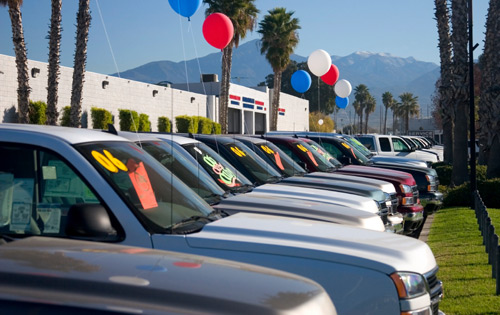
Buying a vehicle is something that many people avoid due to the high costs involved with the ownership of a car. From car repayments to maintenance and fuel, the costs can really add up to hammer on your bank account.
However, for some people, owning a car is a necessary evil and something that can’t be avoided. In these cases, there are fortunately ways of minimizing how much you’ll be spending on your car on a monthly or weekly basis. Here are some tips to keep your costs low.
Choose the Best Insurance
Many people don’t think to factor in their insurance costs when budgeting for a car purchase, but this is a cost that can make a big difference. Insurance is important to have, but it doesn’t need to cost you an arm and a leg.
Do your research and plan carefully in order to find the best and cheapest car insurance on the market. Take a look at Nationwide insurance reviews as a starting point.
You might want to get in touch with an insurance broker who can help you find the best deals for your needs.
Buy a Fuel Efficient Car
Different cars and engines burn different amounts of fuel to travel the same distances. This comes down to how heavy the car is, how efficient the engine is and a few other factors.
When shopping for a new car, be sure to ask about the fuel efficiency and do your own research before committing to a car. Gas expenses can really add up to take a huge chunk of your monthly income, so the more you can minimise this, the better for your budget.
Carefully Consider New vs Used
New and used vehicles will both have their pros and cons, even when just looking at the financial implications. A used vehicle might be cheaper in the short term but could present problems much sooner than a new car would.
Meanwhile, a new car will definitely involve more money in terms of car repayments, but a service plan, better fuel efficiency, cheaper insurance and less existing damage could contribute to an overall better financial outlook over the years.
It’s important that you research your options thoroughly before making a final decision.
Get a Service Plan
Often, buying a brand new vehicle will come with the added benefit of a few years’ worth of service plan included in the cost. If this is the case, you won’t need to worry about paying for routine maintenance for the duration of this plan.
If your car doesn’t come with a service plan, it might be in your best interests to purchase one, but keep in mind that this isn’t always worth the expense.
Learn How to Drive Efficiently
Believe it or not, the way you drive can have a serious impact on how much fuel you use up. Consider being a little self-critical on your driving skills and investigate ways that you could drive more efficiently.
This could see your monthly gas expenses coming down significantly and free up space in your budget for bigger and better things.
